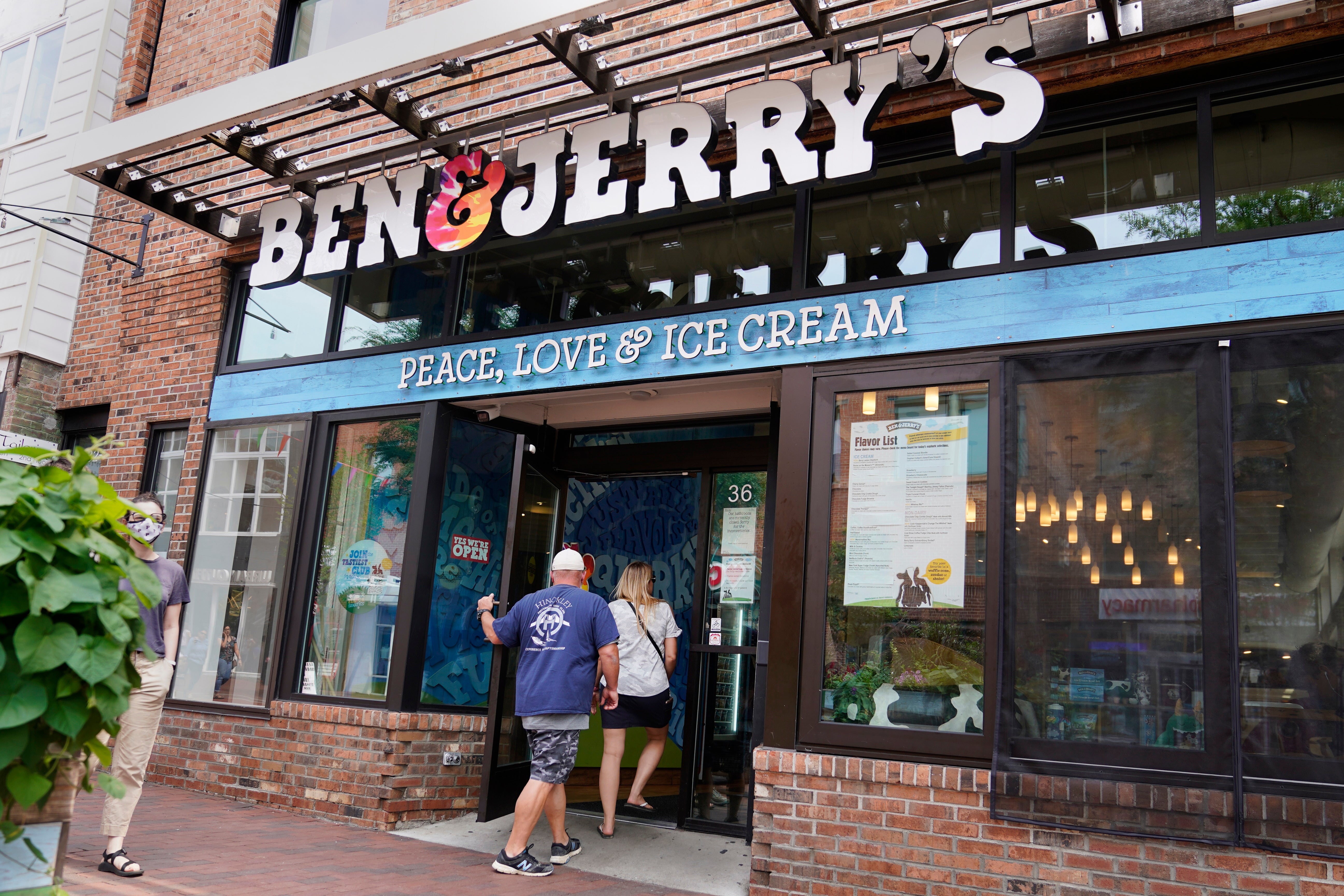Ben & Jerry's ice cream fight in Israel heats up
The Vermont-based ice cream maker Ben & Jerry’s is suing its corporate parent Unilever over a plan that would allow its product to be sold in east Jerusalem and the occupied West Bank

One week after its parent company found a way to get Ben & Jerry’s ice cream sold in east Jerusalem and the occupied West Bank, the company known for its stance on social issues almost as much as for its Chunky Monkey ice cream is suing to block that from happening.
Unilever announced that it was selling its interest in the Vermont ice cream maker to its Israeli licensee, which would market Ben & Jerry’s products with Hebrew and Arabic labels.
Ben & Jerry’s fired back this week in a Manhattan federal court that Unilever’s maneuver “poses a risk” to the integrity of its brand. It claims the deal violates the 2000 acquisition agreement that allowed Ben & Jerry's to continue its progressive social mission independently of business decisions made by Unilever.
“An injunction restraining Unilever from violating the express terms of the Merger Agreement and Shareholders Agreement is essential to preserve the status quo and protect the brand and social integrity Ben & Jerry’s has spent decades building," the complaint says.
That passage in the lawsuit refers to the intense bidding process that took place in 2000 for Ben & Jerry’s, one of the most recognizable brands in America. Ben & Jerry's was adamant that even after a sale, it would be allowed to continue to pursue its social causes.
The final agreement was so unique that Richard Goldstein, then group president of Unilever North American Foods, said ““I never did another deal that was remotely like it,” according to the suit.
In agreeing to the sale, Ben & Jerry's was allowed an independent board of directors which was authorized to prevent Unilever from making decisions that are “inconsistent with the Essential Integrity of the Brand," according to legal filings.
Unilever said it does not comment on pending litigation, but said it did have the right to the sale and that, “The deal has already closed."
The complaint outlines Ben & Jerry's history of social activism over its 44-year history, including opposition to U.S. nuclear weapons spending in the 1980s and in the 1990s supporting LGBTQ+ rights and farmers.
That activism has continued under Unilever with the focus on, among other issues, migrant justice and climate change. In the aftermath of the 2020 death of George Floyd, Ben & Jerry's became an advocate for Black Lives Matter.
Last year Ben & Jerry's independent board said it was going to stop selling its ice cream in the Israeli-occupied West Bank and contested east Jerusalem, saying the sales in the territories sought by the Palestinians are “inconsistent with our values.”
Unilever said it was committed to its operations in Israel, and earlier this year it was sued by its Israeli licensee, American Quality Products Ltd, over the termination of their business relationship, saying it violated U.S. and Israeli law.
When Unilever announced it was selling the Israeli operations to American Quality Products last week, it said it had “used the opportunity of the past year to listen to perspectives on this complex and sensitive matter and believes this is the best outcome for Ben & Jerry’s in Israel.”
Israel hailed the decision by Unilever as a victory in its ongoing campaign against the Palestinian-led Boycott, Divestment and Sanctions movement, which aims to bring economic pressure to bear on Israel over its military occupation of lands the Palestinians want for a future state.
Unilever does not support the BDS movement and has said it was “very proud” of its business in Israel, where it employs around 2,000 people and has four manufacturing plants.
Ben & Jerry’s 2021 decision was not a full boycott, and appeared to be aimed at Israel’s settlement enterprise. Some 700,000 Jewish settlers live in the occupied West Bank and east Jerusalem, which Israel annexed and considers part of its capital. Israel captured both territories in the 1967 Mideast war, and the Palestinians want them to be part of their future state.
Most of the international community views the settlements as a violation of international law. The Palestinians consider them the main obstacle to peace because they absorb and divide up the land on which a future Palestinian state would be established. Every Israeli government has expanded settlements, including during the height of the peace process in the 1990s.
Bookmark popover
Removed from bookmarks